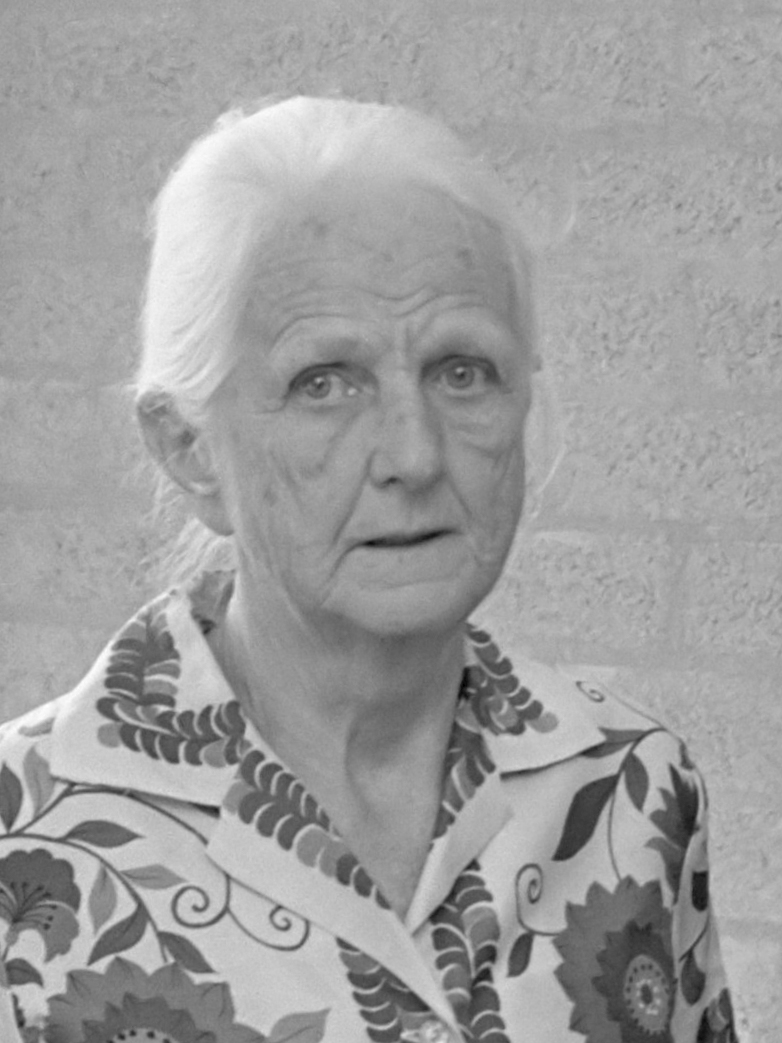
Joan Robinson
Joan Violet Robinson FBA (née Maurice; 31 October 1903 – 5 August 1983) was a British economist known for her wide-ranging contributions to economic theory. One of the most prominent economists of the century, Joan Robinson incarnated the "Cambridge School" in most of its guises in the 20th century. She started out as a Marshallian; became, after 1936, one of the earliest and most ardent Keynesians; and ended up as a leader of the Neo-Ricardian and Post-Keynesian schools.
For the British author and illustrator of children's books, see Joan G. Robinson. For the American socialite and equestrian, see Joan Robinson Hill.
Joan Robinson
5 August 1983 (aged 79)
Early life and education[edit]
Before leaving to fight in the Second Boer War, Joan's father, Frederick Maurice, married Margaret Helen Marsh, the daughter of Frederick Howard Marsh, and the sister of Edward Marsh, at St George's, Hanover Square.[1] Joan Violet Maurice was born in 1903, a year after her father's return from Africa, the third of five siblings.[2]
Joan Maurice studied economics at Girton College, Cambridge.[3] She completed her studies in 1925 but due the Cambridge University's refusal to grant degrees to women until 1948, she did not formally graduate. Following her marriage to economist Austin Robinson the next year, became known as Joan Robinson.[2]
The couple moved to India shortly after their marriage where Joan Robinson became interested in the relations between the British Raj and the Indian princely states and wrote a report on the subject. This time in India was a formative experience on Robinson, shaping her future research interest in both the country and her studies of developing economies.[2] In 1928, the couple returned to Cambridge and Robinson started teaching in the early 1930s as a Junior Assistant Lecturer.[4]
Career[edit]
Robinson crossed swords with the economist Marjorie Hollond, Girton's director of studies, over the teaching of economics. Robinson wanted to teach the latest economic theories whereas Hollond believed that they were as yet unproven.[5] In 1937, Robinson became a lecturer in economics at the University of Cambridge.[6] She joined the British Academy in 1958 and was elected a fellow of Newnham College in 1962. In 1965 she assumed the position of full professor and fellow of Girton College. In 1979, just four years before she died, she became the first female honorary fellow of King's College.[7]
As a member of "the Cambridge School" of economics, Robinson contributed to the support and exposition of Keynes' General Theory, writing especially on its employment implications in 1936 and 1937 (it attempted to explain employment dynamics in the midst of the Great Depression).
During World War II, Robinson worked on a few different Committees for the wartime national government. During this time, she visited the Soviet Union as well as China, gaining an interest in underdeveloped and developing nations.
Robinson was a frequent visitor to Centre for Development Studies (CDS), Thiruvananthapuram, India. She was a visiting fellow at the Centre in the mid-1970s.[8] She instituted an endowment fund to support public lectures at the centre. She was a frequent visitor to the centre until January 1982 and participated in all activities of the centre and especially student seminars. Professor Robinson donated royalties of two of her books (Selected Economic Writings, Bombay: Oxford University Press, 1974, Introduction to Modern Economics (jointly with John Eatwell), Delhi; Tata McGraw Hill, 1974) to CDS.
Robinson also made several trips to China, reporting her observations and analyses in China: An Economic Perspective (1958), The Cultural Revolution in China (1969), and Economic Management in China (1975; 3rd edn, 1976), in which she praised the Cultural Revolution. In October 1964, Robinson also visited North Korea, which was effectively a single-party Communist state, and wrote in her report "Korean Miracle" that the country's success was due to "the intense concentration of the Koreans on national pride" under Kim Il Sung, "a messiah rather than a dictator."[9] She also stated in reference to the division of Korea that "[o]bviously, sooner or later the country must be reunited by absorbing the South into socialism."[10] During her last decade, she became more and more pessimistic about the possibilities of reforming economic theory, as expressed, for example, in her essay "Spring Cleaning."[11]
Robinson was a strict vegetarian. She slept in a small unheated hut at the bottom of her garden all year round.[12]
Family[edit]
Robinson's father was Frederick Maurice, her mother was Margaret Helen Marsh. The distinguished London surgeon and Cambridge academic Howard Marsh was Joan Robinson's maternal grandfather.
Joan Maurice married fellow economist Austin Robinson in 1926.[29] They had two daughters, Ann and Barbara.[2][29]